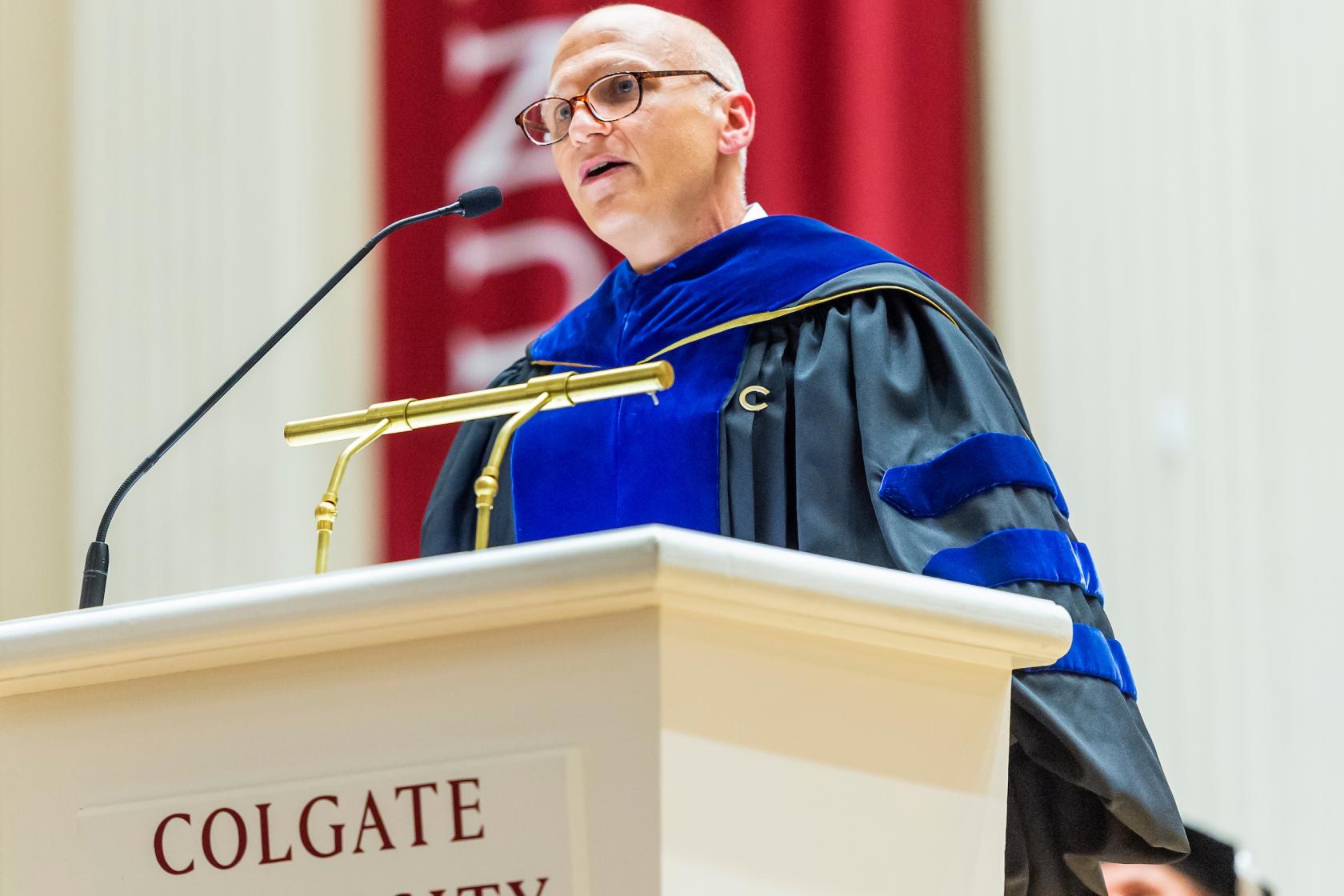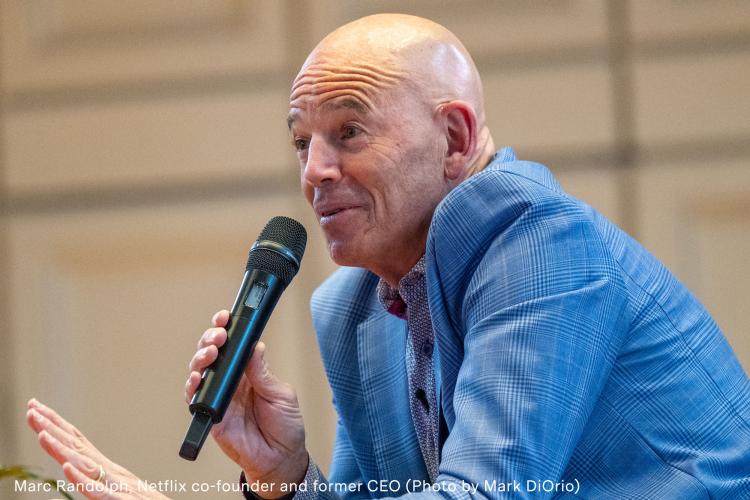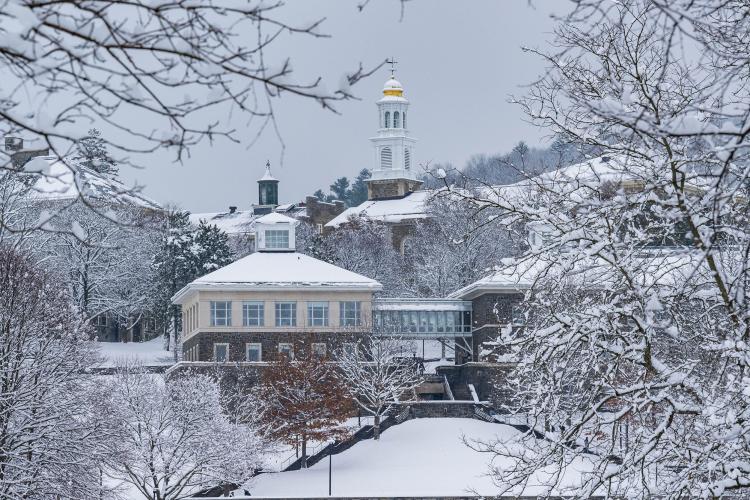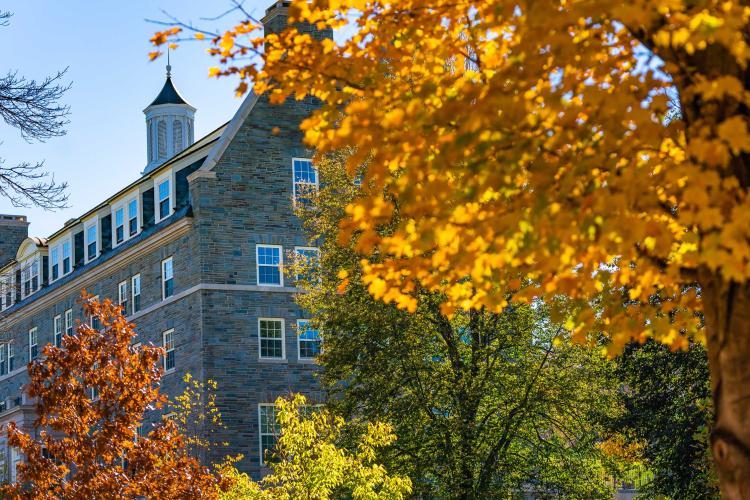Jeff Bary loves darkness. And for good reason: As associate professor of physics and astronomy, Bary understands how light pollution — the excessive use of artificial, man-made light — can block our view of the stars.
“In towns and cities where you have lots of artificial light, the light scatters and creates a bright background through which to see the stars. The brighter the light, the fainter and fainter the stars become,” Bary says. “What that amounts to, is that in some places, you have entire generations of children who will grow up never seeing a dark sky teeming with stars or the fuzzy Milky Way running like a river through the sky.”
Once only a problem in heavily populated urban areas, says Bary, increased use of LED and high-intensity lighting is beginning to impact more rural areas — including his home state of West Virginia. It’s an issue he’s been passionate about for years, despite its loose intersection with his main discipline of astrophysics.
So when Bary, a member of Colgate’s physics and astronomy faculty since 2008, got the call for proposals for the Sweet Family Chair endowed position, he knew his dark sky passion project might make him the perfect fit.
Established by Andrew W. Sweet ’93 in 2022, this permanent endowment fund was created to “recognize and support a Colgate faculty member’s continued scholarly development in new areas of intellectual inquiry through sustained immersion into knowledge beyond their current discipline.” It is one of roughly two dozen endowed chairs that will be established during the Campaign for the Third Century.
Bary submitted a proposal detailing his dark sky work and, in spring 2022, was awarded the prestigious position.
“The endowed chair has been incredible in that it has allowed me the time and funding to do more of this research and bring it back to my students,” says Bary.
With the course release and research funding provided by the endowment, Bary’s dark sky advocacy work has since expanded to explore the relationship between the night sky and Appalachian residents’ sense of place, using literature and film to illustrate the importance of preserving our view of the stars. He is hosting a symposium at Colgate on the topic in April, titled “Dark Skies in Appalachian Identity, Culture, and Sense of Place.” The panel of speakers, which includes artists, authors, musicians, and scientists, will explore the connection people have, either consciously or subconsciously, with the night sky.
“It's kind of funny, because once I started thinking about this, I realized I could pick up any book written by an Appalachian author and find an interesting reference to the night sky,” Bary says. “In books like Demon Copperhead by Barbara Kingsolver and novels by Silas House, the night sky is almost its own character, with lots of references to the darkness of the sky in Appalachia, as opposed to other parts of the United States.”
Helping raise awareness about light pollution and protecting dark sky areas has its obvious benefits for scientists like Bary, but it can also come with economic advantages for struggling parts of rural Appalachia. Through his work with the Appalachian Studies Association, a group of scholars and activists dedicated to preserving Appalachian history and culture, Bary is working to earn an International Dark Sky Place designation for a site in Calhoun County, W.Va. The official designation, he says, can help the region become a tourist destination for star-seekers worldwide.
“There are so few dark sky areas, especially in the eastern part of the country, that the very few become astro-tourist attractions,” he says. “That creates a real economic opportunity for these rural communities.”
Back at Colgate and supported by the Sweet Family Chair, Bary is sharing his research with the Colgate community in presentations — including a talk last September, part of Colgate’s Lifelong Learning Program, and the upcoming symposium — and hoping his message resonates.
“[Light pollution] is not a climate change–scale problem in that it’s easy to fix,” he says, citing how simple adjustments to the wattage, direction, and color of lighting can significantly reduce the damaging effects.
“It’s just about making people aware of the cultural significance of the night sky and that it is something we should all be invested in protecting.”



